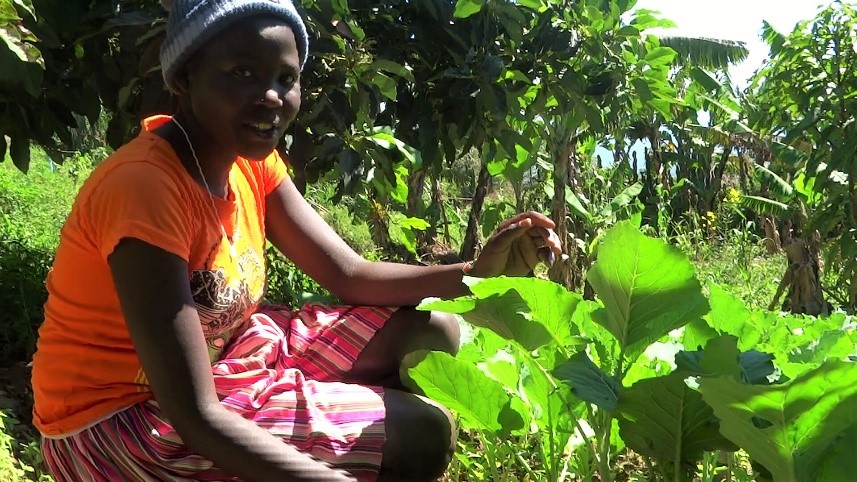
Making Food Security a Reality
Program participants are using a wide range of strategies to improve their food security, and prepare for the future. They are also earning money through a variety of small businesses.
This year most farmers got good harvests. Ample rains certainly helped, but they also put in a lot of hard work to prepare the land using animal manure and fertilizer.
In order to protect themselves from future challenges, they have embraced a strategy of crop diversification. In addition to the traditional maize and beans, they planted legumes, millet, sorghum and sweet potatoes. When one crop of legumes was lost due to heavy rains, the farmers did not experience complete loss since they still had other crops.
Farmers are also recognizing the wisdom of improved storage. Unlike previous years when participants sold their entire crop, most are now selling only their surplus, while storing the rest for family use. One farmer, Stellah, recalls a time when she ran out and was forced to buy five bags of costly maize to feed her family of 10. This year, however, she is saving food, keeping an eye on the market and restocking when prices are low. Nearby, a Self-Help Group pooled their funds to purchase maize while market prices were lower and stored it for hard times.
Some folks have started small businesses that are ensuring increased food availability and access, and helping to regulate food prices. Irene buys vegetables and bananas in nearby towns and sells them in her village. The community benefits by having access to good food without having to travel for it, and Irene is able to buy milk for her children with part of her earnings.
Mercy (see photo), a participant in the Girls’ Empowerment program, showed initiative when the Learning Center had to close for a time due to COVID19. She took some vegetable seedlings home with her and planted a kitchen garden. Her family is now enjoying home-grown vegetables.
Kenya West Pokot Program
Led by Evangelical Covenant Church/Covenant World Relief
